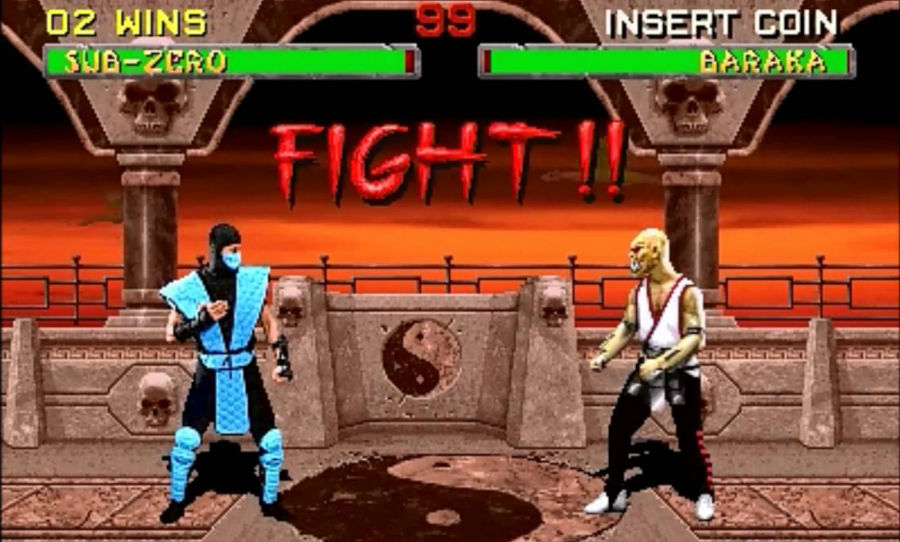The Greatest Fighter of All Time
Part 2: Mortal Kombat
Jun 23
Unleash your inner fighter as we dive into the thrilling world of arcade fighting games! On this instalment, we're exploring the captivating realm of fatalities, uppercuts, and spine-tingling battles: It's the legendary Mortal Kombat!

As I sit here reflecting on the greatest fighter to hit the arcade floor my thoughts inevitably drift to the Mortal Kombat franchise. Specifically I ponder the evolution of Mortal Kombat. It’s beginnings. Impact and of course, legacy. As a seasoned gamer and lover of all things violent and visceral, I feel compelled to compare the original Mortal Kombat with its sequel, Mortal Kombat II. These two games represent the evolution of a franchise that sparked controversy, debate, and devotion across the gaming world.
The original Mortal Kombat was a game-changer, a bold and audacious game that introduced the concept of realistic digitised characters, fatalities, and a mysterious hidden character known as Reptile. The game's mechanics were relatively simple, with players choosing from seven characters and fighting their way through a series of battles to reach the final boss, the enigmatic Shang Tsung.
Mortal Kombat II, on the other hand, took everything to the next level. The game's roster of characters was expanded to twelve, with each character having their unique fighting style and special moves. The game's fatalities were even more gruesome and varied, with characters ripping each other apart and spilling gallons of blood in the process. The game's mechanics were refined and polished, allowing for more precise and complex combos and moves.

In terms of graphics and sound, Mortal Kombat II was a significant improvement over the original. The game's backgrounds were more detailed and dynamic, with multiple layers of animation and effects. The game's soundtrack was also more memorable and varied, with each character having their unique theme music.
But what truly sets Mortal Kombat II apart from its predecessor is its impact on gaming culture. The game sparked controversy and debate around the world due to its extreme violence and gore. The game's fatalities were even more gruesome and shocking than those of the original, leading to protests, boycotts, and even bans in some countries.
But despite the controversy, Mortal Kombat II was a massive success. The game's characters became cultural icons, with their catchphrases and moves referenced in movies, TV shows, and music. The game's competitive scene was thriving, with tournaments and competitions drawing in players from around the world.

Ultimately, Mortal Kombat II was a game that pushed the boundaries of what was acceptable in gaming and sparked a debate about video game content and censorship that still resonates today. While the original Mortal Kombat was a groundbreaking game in its own right, Mortal Kombat II took everything to the next level, with its expanded roster, refined mechanics, and shocking content.
The next game in the Mortal Kombat franchise is being touted as a sort of spiritual reboot having reached its eleventh mainline instalment with its last release. Over thirty years on from the original games release, its safe to say the game has achieved that rare feet for a classic franchise: Its still 100% relevant in today’s video game climate. Something most games of its era can’t claim to be.
Tune in next time when we’ll be taking a look at 3d Fighting behemoth Tekken - a game that arguably holds the title of the being the biggest fight game franchise out there in terms of its player base in the competitive scene….